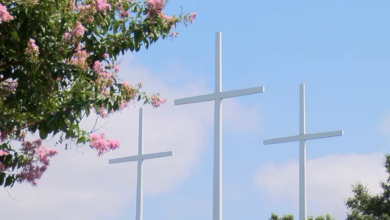India celebrates Dussehra with gusto after 2 years of Covid restrictions

New Delhi, Oct 5 (EFE).- India on Wednesday celebrated the Hindu festival of Dussehra, which symbolizes the victory of the good over evil, with public fervor again after two years of Covid-related restrictions, with devotees burning large effigies of mythological demon Ravana and setting off fireworks.
The festival, celebrated on the 10th day of the seventh month of the Hindu lunar calendar, falls in September or October and represents a new beginning after Lord Rama, a Hindu deity, defeated and killed the demon Ravana, who had kidnapped his wife apart from indulging in other evil deeds.
The festival also marks the victory of the goddess Durga – who is supposed to return to earth for the nine days preceding Dussehra – over the demon Mahishasura.
The festival has several traditions linked to it in different parts of the country: in the north, a popular folk-theater narrating the story of Rama is performed at many places for nine days, and ends with the actor playing Rama shooting a burning arrow into the effigy of Ravana, thus symbolically destroying evil from the society.
“Dussehra is a festival that has been celebrated since ancient times, but its importance and lessons are still applicable and will always be,” Adisht Narayan Jha, a priest at a temple of Hanuman – the monkey-god who accompanied Rama – in New Delhi, told EFE.
“In the 21st century, it’s important for us to win over the depression and anxiety which are the main evils for this generation, only then the youth of today can climb up to the ladder of growth, success and prosperity,” he added.
“For me, Dussehra is a festival that is the celebration of the decisive victory over our own internal demons which gives us a light of hope,” Lachi Gola, a young Indian woman, told EFE near the temple.
Celebrated by people irrespective of cultures, castes or economic situation, Dussehra celebrates a new beginning for everyone and helps them forget disparities.
The festival was last celebrated publicly without restrictions in 2019, months before the Covid-19 pandemic triggered a worldwide health emergency and prevented large public gatherings in India for over two years.
However, as the caseload continues to be low – with barely 3,000 cases reported across India within the past 24 hours – this year the festival is being celebrated in all its glory.
India was one of the countries worst affected by the pandemic, with over half a million deaths caused by the coronavirus.
The South Asian nation began its vaccination campaign on Jan. 16, 2021 and has administered over 2.1 billion doses of the vaccine to its population. EFe
ns-hbc/ia





